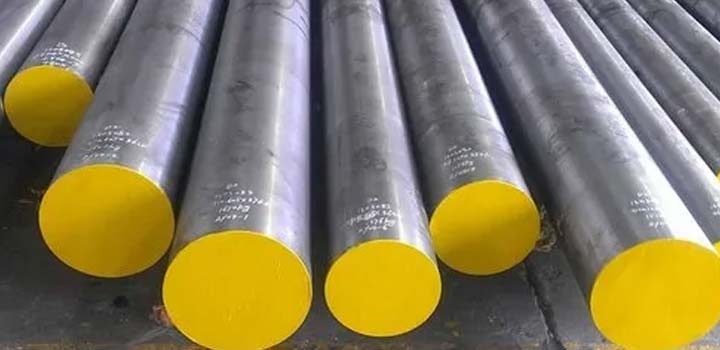Understanding the chemical composition of EN8 steel is essential because it directly influences its mechanical properties. Elements like carbon, manganese, and silicon determine characteristics such as strength, hardness, toughness, and weldability. A well-balanced composition ensures that the material performs reliably in various industrial applications. EN8 steel is a medium-carbon steel known for its balanced mechanical properties. Its composition includes carbon, manganese, silicon, sulfur, phosphorus, and iron. Each element plays a vital role in defining the overall performance of the material. The mechanical properties of EN8 steel are crucial for determining its suitability in different engineering applications. These properties include yield strength, tensile strength, impact resistance, and ductility. The values can vary depending on the heat treatment applied to the material. EN8 steel has several equivalents across different standards, making it easier to identify suitable alternatives based on regional or application-specific requirements. The hardness of 080M40 steel can be adjusted through various heat treatment processes, making it adaptable for different applications. Here are the typical hardness values after each process: While both EN8 and EN9 are medium-carbon steels, they differ in their carbon content and resulting mechanical properties: EN8 steel is commonly forged at temperatures ranging from 1100°C to 850°C. This process helps improve the microstructure and enhance the material's mechanical properties. Proper heat treatment is essential to achieve the desired mechanical properties in EN8 steel. The following are the standard treatments: EN8 steel is available in a wide range of forms and sizes, making it suitable for various industrial applications: The thermal properties of EN8 steel, such as thermal conductivity and thermal expansion, make it suitable for applications involving temperature variations: Annealing is a common process used to relieve internal stresses and improve machinability. For 080M40 steel, the recommended annealing temperature is between 680°C and 710°C. The surface finish and tolerance of C45 steel play a critical role in its final application. Different finishes are available to meet specific design and performance requirements: The surface hardness of S45C steel is typically around 55 HRC, which makes it suitable for applications requiring high wear resistance and durability. To ensure the quality and reliability of 1045 steel, the following testing methods are commonly used: Shelf Diagonal Brace Roll Forming Machine Shelf Diagonal Brace,Shelf Support Structure,Precise Cold Bending Processing,Support The Shelf Structure Huai'an Senyu Intelligent Technology Co., LTD , https://www.jshasyzn.com
Table of contents
EN8 Chemical Composition
EN8 Steel Mechanical Properties
Heat Treatment
Yield Strength (MPa)
Tensile Strength (MPa)
Rp 0.2 (MPa)
Impact
Izod (ft.lb)
KCV (J)
N
280
550
–
15
16
245
510
–
–
–
Q
385
625/775
355
25
28
R
465
700/850
450
25
28
EN8 Material Equivalent
Country
British
USA
Australia
Japan
Standard
EN 10083-2
ASTM A29
AS 1442
JIS G4051
Grades
C45 / 1.1191
1045
1045
S45C
Hardness of 080M40 Steel
Heat Treatment
Hardness (HB)
Normalising
152–207
Quenching
179–229
Tempering
201–255
EN8 vs EN9 Steel
Properties
EN8
EN9
Carbon Content
0.36–0.44%
0.50–0.60%
Hardness
Up to 207 HBW
Up to 255 HBW
Tensile Strength
≥540 MPa
≥695 MPa
Forging of EN8 Carbon Steel
Heat Treatment of EN8 Carbon Steel
Heat Treatment
Temperature
Soft Annealing
680–710°C (furnace)
Normalising
840–880°C (air)
Hardening
820–860°C (water, oil)
Tempering
550–660°C (air)
Available Product Range of EN8 Steel
EN8 Steel Plate and Sheet
Strips
Thickness: 0.4mm – 4mm
Sheets (Cold Rolled)
Thickness: 0.4mm – 4mm
Sheets (Hot Rolled)
Thickness: 2.7mm – 12mm
Plates
Thickness: 16mm – 150mm
Heavy Plates
Thickness: 16mm – 350mm
1045 Steel Round Bar
Rolled Round Bar
Diameter: 16mm – 250mm
Heavy Forged Round
Diameter: 200mm – 450mm
Heavy Machined Round
Diameter: 260mm – 620mm
Heavy Ship Shafts
Diameter: 450mm – 1000mm
S45C Flat Bar
Rolled Flat Bar
Thickness: Up to 50mm
Width: Up to 455mm
Forged Flat Bar
Thickness: Up to 305mm
Width: Up to 455mmThermal Properties of DIN 1.0511
Thermal Conductivity
Thermal Coefficient
37.5 W/m K
6.5e-6 W/m K
Annealing of 080M40 Grade Steel
C45 Grade Surface Finish & Tolerance
Surface Finish
Turned
Black-Rolled
Polished
Grinding
Cold Drawn
Black-Forged
Peeled
Tolerance
(0, +3mm)
(0, +1mm)
Best h11
Best h9
Best H11
(0, +5mm)
Best H11
Surface Hardness of S45C Steel
Testing Methods for 1045 Steel
Carbon
0.36–0.44%
Silicon
0.10–0.40%
Manganese
0.60–1.00%
Sulfur
0.05 Max
Phosphorus
0.05 Max
Iron
97.75 to 98.05%